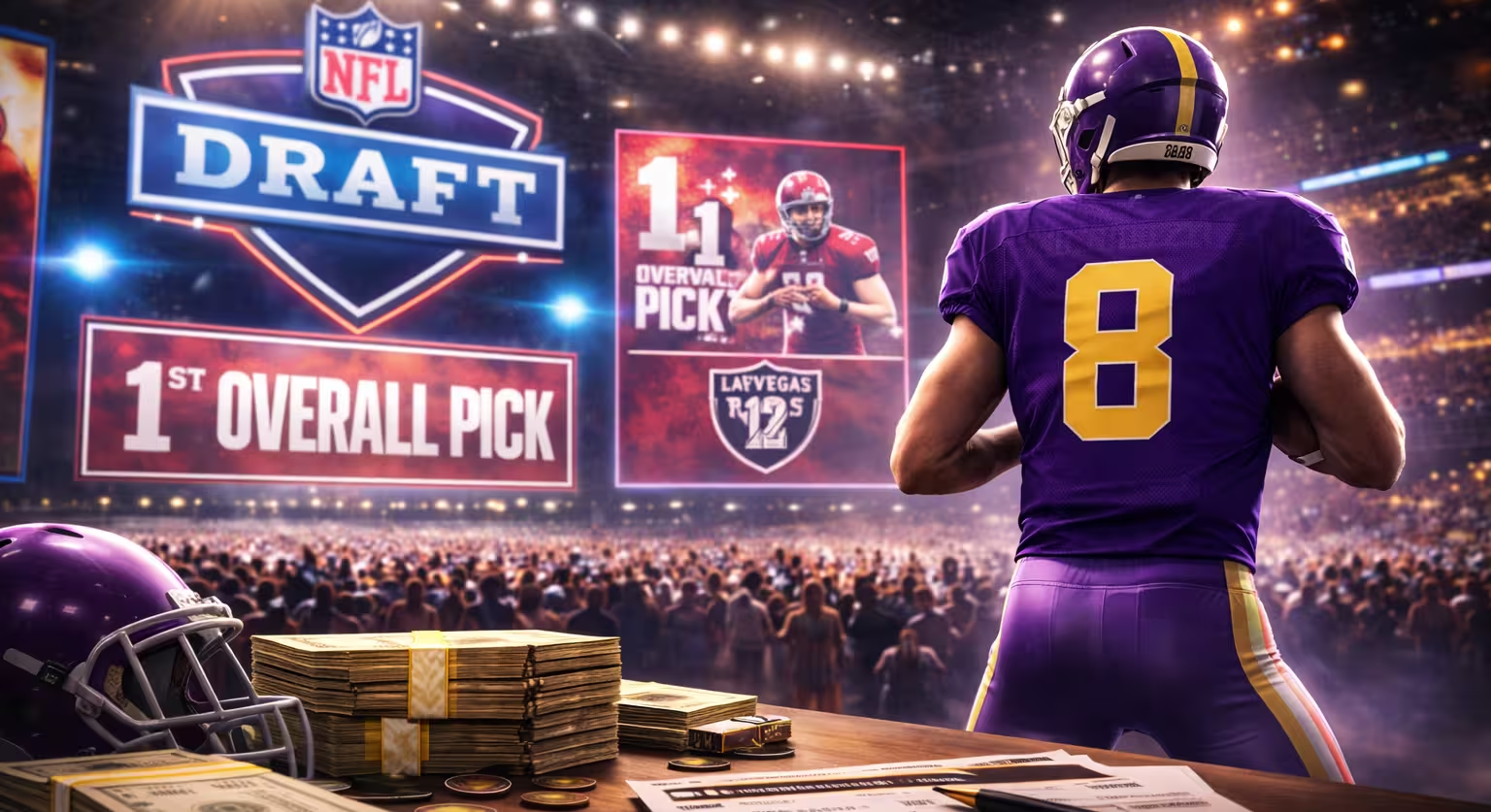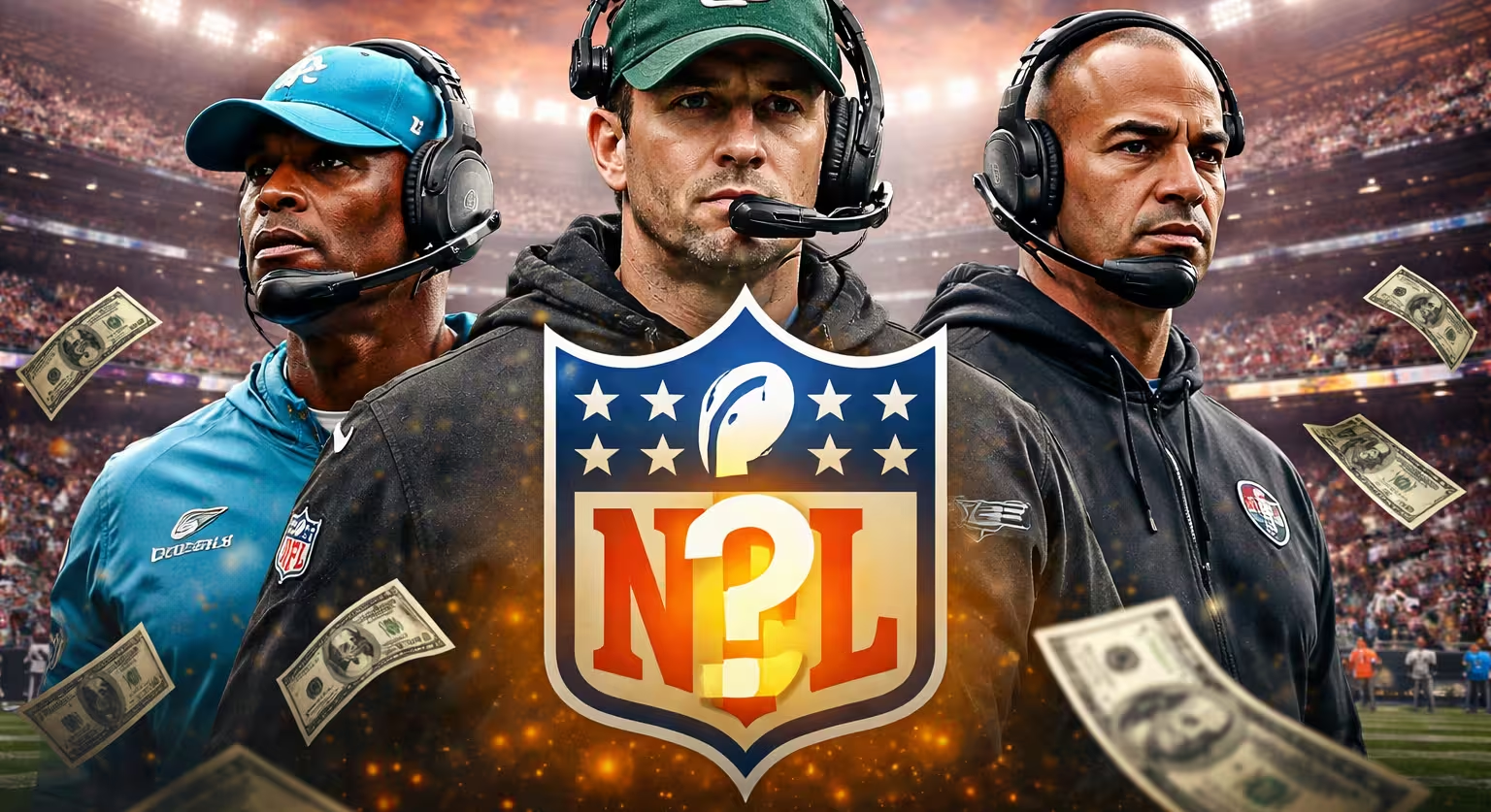Web3 and NFTs in Gambling: Hype, Scams, or the Next Big Win?

No matter how many times it’s explained to me, I cannot grasp the concept of an NFT. Technically, I know what it is. It’s a non-fungible token. That means it’s unique and cannot be replaced. Whereas crypto and physical money are fungible and can be exchanged or traded. I get that part! But if they can’t be used, what’s the point?
Now, I’ve never heard of Web3, so we are going to learn about this together. The definition is this, according to Wikipedia: “Web3 (also known as Web 3.0) is an idea for a new iteration of the World Wide Web which incorporates concepts such as decentralization, blockchain technologies, and token-based economics.”
Ok, fine! That sort of makes sense. But how do they fit in with online gambling and gaming?
Apparently, Web3 and NFTs are popping up in online poker rooms, slot sites, and all kinds of other online gambling platforms in between, and they’re claiming to be “community-owned.”
Developers absolutely swear that this tech is the end-all be-all of fair play and transparency. But others are reaping the benefits and cashing in when a lot of people don’t really understand how it works or what the rules are.
So, which is it? An amazing breakthrough or bait for suckers?
We aim to find out! Prepare to get an education about Web3 and NFTs in gambling, and if it’s worth the hype, a scam masquerading as a cute token, or if it will be good for the industry.
What Is Web3 Gambling?
Web3 gambling platforms use blockchain infrastructure to run casino games, manage bets, and process payouts without traditional oversight. Instead of a centralized operator controlling every transaction, the sites rely on smart contracts, those pre-written code that are stored on a blockchain, to enforce rules and handle wagers.
The difference isn’t only technical; on a standard gambling site, you deposit money, trust the site to honor your bets, and withdraw when you’re allowed to.
On a Web3 platform, you connect a crypto wallet, usually holding Ethereum, Bitcoin, or a token minted by the casino itself, and interact directly with the protocol. The code processes bets, distributes rewards, and posts results publicly.
There are three main features that define this format, and they are as follows:

Decentralization
There’s no single company that’s holding the funds or running the backend. Smart contracts do the work, and that removes the human component, but that also means no live support if something breaks. If the contract malfunctions or if liquidity dries up, there’s no one to call for help.

Smart Contracts
Smart contracts are what determine who wins, how much gets paid out, and if the process is fair. Some projects publish their code for public review, and others operate on closed systems, making the “transparency” claim pretty much meaningless.
Crypto-Based Betting and Rewards
Every transaction, from deposits to jackpots, happens in crypto. Some gambling sites pay in major coins (ETH, BTC), and others in proprietary tokens that fluctuate in value. A few also issue NFT collectibles tied to game access, jackpot tiers, or rakeback bonuses. They can be tradeable or worthless, depending on the platform’s market activity.
Below are examples of the platforms that utilize the features above:
- Decentral Games: Offers blackjack and poker inside metaverse environments like Decentraland. Requires an avatar and a crypto wallet. Runs on $DG token mechanics.
- BC.GameBitcoinX: A high-volume crypto casino offering everything from slots and dice to sports betting. Uses its own $BCG token for rebates and bonuses.
- Rollbit: A combo of slots, trading, and live games with aggressive token marketing and gambling-linked NFTs. Known for large-scale giveaways and influencer promos.
- Stake.com: A hybrid crypto sportsbook and casino, Stake isn’t fully decentralized, but it runs entirely on crypto and markets heavily to Web3 audiences. It’s licensed in Curaçao and uses Bitcoin, Ethereum, and several altcoins for betting. It’s known for partnering with influencers and major sports teams.
- FortuneJack: This is one of the older crypto casinos. It accepts multiple coins (BTC, ETH, LTC, DASH, etc.), has provably fair games, and a loyalty rewards program that’s based on wagering volume. It’s not fully decentralized, but it really leans into blockchain tools for game validation.
- Zed Run: A virtual horse racing platform built on the Ethereum and Polygon networks. Players own, trade, and race digital horses (NFTs) in daily races for crypto prizes. It straddles the line between gambling, collecting, and gaming.
- Derby Stars: A newer entry in the same category as Zed Run, this was built on the Polygon blockchain. It adds more game mechanics (training, stamina, rider boosts) and it uses metaverse-style interactions.
- BetSwirl: A fully on-chain casino running on the Binance Smart Chain. It uses smart contracts to execute every game (dice, coin flips, roulette), and publishes all outcomes on-chain. Wagers are placed directly from wallets, and there’s no traditional login or user account.
- FunFair (now FunToken): Initially launched to power provably fair casino games, it transitioned into a broader utility token ($FUN) used across multiple crypto gambling platforms. The games are built using blockchain tools, with payout odds and random number generation auditable on-chain.
All of the above sites push a version of the same idea: to rebuild gambling infrastructure using public code and digital tokens instead of fiat, banks, and regulators.
And most of these platforms land somewhere between “crypto casino” and “Web3-native gambling protocol.” BetSwirl or Zed Run are fully integrated with blockchain mechanics. And Stake or FortuneJack, rely mostly on crypto but still operate with traditional company structures and licenses.
How NFTs Are Being Used in Gambling
Now for NFTs! These aren’t only strange art files or super overpriced monkey JPEGs. In the gambling industry, they can also function as access keys, game pieces, and revenue shares. Even though they appear to be passive collectibles, they’re used, traded, and sometimes staked for payouts! Here’s how it works:
Tokenized In-Game Assets
NFTs are now being used as playable items inside crypto casinos and virtual betting environments. That includes poker avatars, animated wearables, dealer skins, or slot machine overlays. The idea is this: instead of picking a look from a menu, you own the item and can use, sell, or rent it. On platforms like ICE Poker, players have to own or lease NFT clothing to sit at tables and earn daily rewards. The items sometimes boost rakeback or unlock leaderboards.
NFT-Based Ownership of Game Mechanics or Revenue Share
Some casinos are selling NFTs that grant partial control or financial upside, and they’re tied to how the platform runs. BetNFT issues tokens that pay holders a percentage of house profits. The NFT links directly to a smart contract that collects and distributes revenue based on platform activity. Other projects allow players to “own” slot games or bet pools, and they get a cut whenever someone else plays.
Exclusive Access to VIP Games or Private Betting Clubs
Instead of loyalty programs or paywalled memberships, certain gambling sites use NFTs as access passes. Holding a specific token can unlock high-stakes tables, private sportsbooks, or bonus tiers that aren’t available to the general public. The tokens can be resold, adding a speculative layer to access itself. The barrier to entry isn’t your bankroll; it’s if you bought (or minted) the right pass at the right time.
Think we’re joking? We aren’t! Look below for real-world examples of NFT use cases:
| Platform | NFT Use Case | Blockchain |
|---|---|---|
ICE Poker | Wearables unlock access and rewards | Ethereum |
BetNFT | NFTs tied to profit-sharing | Varies (Ethereum) |
Zed Run | NFT racehorses are used for paid races and breeding | Ethereum/Polygon |
DeRace | NFT horses and racetracks both earn rewards | Ethereum/Polygon |
Etheroll | Exploring NFTs for VIP access and perks | Ethereum |
Farcana | Skill-based games + NFT items with betting layers | In development |
Degen Zoo | NFT speculation with gambling-style reward pools | Binance Smart Chain |
Chibi Dinos | NFTs tied to fantasy basketball and betting logic | Ethereum |
The Appeal: Why Some Gamblers Are Excited
Online gamblers used to have no other choice than to play on rigid platforms, have limited control, and deal with slow payouts. But with Web3 gambling? It’s a whole different ballgame. It’s definitely not for everyone, but the features that are attracting players are rooted in real frustrations about how most online casinos operate. Therein lies the appeal!
True Ownership Of Digital Assets
On traditional gambling platforms, your chips, bonuses, and in-game assets don’t really belong to you; they all exist inside the site’s system. If that platform disappears or freezes your account, everything tied to it vanishes. With Web3 gambling, digital assets like tokens or NFTs are held in your crypto wallet. They’re not tied to a username or password. You can take them elsewhere, trade them, or store them long-term without having to rely on a site staying online.
Earning Potential Through Play-To-Earn Models
Some of these platforms reward more than winning bets. You could earn tokens by participating in daily games, staking certain assets, or owning NFTs that are tied into gameplay. A poker avatar or virtual racehorse might get you access to rewards pools or generate passive income via rentals. The models aren’t built solely around random jackpots; they’re structured to reward active participation, and sometimes even asset ownership, not only game outcomes.
Transparency Via Blockchain Records
Most online casinos give you not much visibility into how games actually work. On Web3 platforms, the mechanics are written right there in the smart contracts that live on public blockchains. That means you can track how a bet was processed, how odds were applied, and where the payout went. It doesn’t eliminate any risk, but it does remove a lot of the guesswork players have to deal with on traditional platforms.
Lower Fees Or Borderless Play Using Crypto Wallets
Depositing or withdrawing from regular gambling sites can mean long wait times, rejected payments, and limits based on a player’s location. Crypto wallets eliminate this. You connect directly to the platform, deposit from your wallet, and get payouts the same way. There are no third-party banks, no conversion charges, and way less restrictions based on geography. And that obviously appeals to players who’ve been blocked or delayed by outdated financial systems.
The Risks: Scams, Crashes, and Regulation Nightmares
Web3 gambling comes with a lot of very real risks and problems, and they aren’t “early-stage bugs” or bad luck. Nope, there are patterns that burn players and continue to do so. Projects and payouts disappear, and entire platforms collapse without any warning whatsoever. Here’s what gamblers are walking into if they choose to try their luck!
Rug Pulls And Pump-And-Dump NFT Schemes
A typical setup? A slick-looking site, aggressive marketing, and a promise of future rewards, then nothing. Developers cash out, shut it all down, and walk away, leaving users holding worthless NFTs or tokens.
Sometimes it’s staged; founders pump the price through fake volume and influencer hype, and then dump everything once it peaks. A version of this played out with $Kinto, which claimed it was hacked, but most in the community called it what it looked like: an exit scam. Projects like Slotie and Flamingo Casino Club sold gambling-linked NFTs with major claims, then fell apart before delivering anything close to what was promised.
Token Crashes That Wipe Out Your Bankroll
Plenty of Web3 casinos rely on their own token for both bets and payouts. And that works fine until the token tanks! Prices can drop 60–90% in a matter of hours if a major holder sells off or trust is broken. That means you could win a bet, check your wallet, and find the value has been cut in half. It’s not only bad luck, as it’s a system that’s built on unstable currency.
Fake Revenue-Share Promises
“Own a piece of the casino.” That’s the line that gets players. You buy an NFT or token that’s supposed to earn you a share of the platform’s profits. Only it doesn’t. Slotie pushed this one and sold NFTs with staking perks and long-term rewards until regulators in several states said it was illegal. They were offering financial returns without proper licensing. The NFTs still exist, but the profits never materialized.
No Rules, No Recourse
There’s no safety net with these platforms. If a traditional sportsbook freezes your account, you can complain to licensing authorities or dispute charges. In Web3 gambling, there’s no one to call. And we do mean no one.
If a smart contract breaks or a site goes offline, that’s it; you’re stuck. Most of the platforms aren’t licensed anywhere meaningfully, and if they aren’t following gambling laws, then they’re definitely not following securities laws. But they sell tokens as if they are.
Cautionary Tales
Want some real examples? Here are ones that either went nowhere, disappeared, failed, or scammed players.
- Stake.com Clones: Fake versions of the site popped up using the same layout, branding, and features, but they weren’t Stake. Users were tricked into depositing, then ghosted.
- Failed Metaverse Casinos: Platforms like Flamingo Casino Club promised land ownership, NFT perks, and immersive gambling in “metaverse lounges.” They didn’t get any of that because regulators shut them down, and users lost access before it went live.

- RiskOnBlast’s $1.3 Million Disappearance: A betting and trading platform built on Blast (an Ethereum layer‑2) vanished before the network even launched. Users pooled funds for betting, then the team pulled liquidity and disappeared, taking with it over $1.3 million in deposits.
- Slotie’s Metaverse Casino Collapse: Slotie sold 10,000 NFTs marketed as “ownership stakes” in its upcoming metaverse casino, complete with daily rewards and revenue sharing. Authorities in Alabama, Kentucky, Texas, and New Jersey issued cease‑and‑desist orders, labeling the tokens unregistered securities. Users ended up with worthless assets after operations were shut down.
- Metaverse Casino Shut Down by Regulators: A Russian‑affiliated virtual casino offering NFT-based access was shuttered after five U.S. states issued emergency orders. The site’s tokenized gaming land and betting NFTs were deemed illegal, and all operations were halted.
- CryptoZoo: Logan Paul’s Failed NFT Game: Backed by the influencer, CryptoZoo promised playable animals and breeding with real earnings. Launched in 2021 and backed by capital, it never delivered a working product. Paul later apologized, announced partial refunds, and faced lawsuits. The game is a disaster in crypto history.
- Axie Infinity Crash and Hack: This early play-to-earn game let users earn via gameplay, but its token, SLP, lost 99% of its value in early 2022. Then, a hacker drained $620 million from its Ronin bridge. What seemed like a stable ecosystem evaporated, leaving a lot of players ruined financially.
Web3 vs Traditional Online Casinos: Main Differences
Onto the main difference between mainstream gambling sites and Web3 platforms! The basic experience, like placing bets, playing games, and chasing payouts, looks almost identical at first glance, but the systems behind them are built in totally different ways.
| Feature | Traditional Online Casinos | Web3 Gambling Platforms |
|---|---|---|
Regulation | Licensed by government agencies in specific regions | Frequently operate without licensing or clear oversight |
Currency | Uses national currencies (USD, EUR, etc.) | Runs entirely on crypto, tokens, or NFTs |
Ownership | Site controls all player accounts and funds | Players control wallets; assets may live outside the site |
Transparency | Odds and payouts are posted, but the backend is hidden | Transactions and smart contract logic are visible on-chain |
Risk Level | Regulated, with limited exposure to platform failure | Exposed to token crashes, scams, tech failures, and legal issues |
Market Trends and Future Outlook
The first flood of cash and clickbait is tapering off, but Web3 gambling isn’t completely dead; it’s just in a different phase. Growth has been slower, expectations are much lower, and the projects that are left standing? They’re the ones that are doing more than selling BS.
Web3 Funding Rounds And VC Interest
Crypto-focused firms are still putting money into gambling and gaming projects, but the initial feeding frenzy is over. The only deals getting done now are tied to platforms that already have active users or a proven infrastructure. Inflated promises don’t close funding rounds anymore. VCs are backing tools with real use, like betting protocols, NFT rental engines, and back-end systems that make crypto gambling easier to run.
NFT Casino Token Price Trends ($ICE, $ROLL)
The numbers don’t lie. $ICE, which is tied to Decentral Games, has dropped to fractions of a cent. $ROLL and $BCG haven’t fared much better, either; volume is down, and listings have basically run dry. Most of these tokens spiked early, then lost value once player activity slowed or platform updates stalled. There’s no liquidity, no incentive to hold them, and no long-term structure holding their price in place. It’s a weak design, and there’s no real demand.
Shifting User Interest From Hype To Utility
Gamblers are getting smarter, and freaking out over rare NFTs or trying to get their hands on the next casino token isn’t working anymore. The users who are still here want products that work: games that don’t break, wallets that connect without a tutorial, and rewards that are tied to activity, not mere speculation. Projects offering weekly play incentives, asset rentals, or simple tournament formats are getting longer engagement. The rest are being ignored.
Predictions: Will Mainstream Adoption Happen Or Fade?
Is mainstream adoption gonna happen? That all depends on who and what shows up next. If crypto-native platforms can build something that’s stable, simple, and legally sound, there’s room for Web3 gambling to grow in parallel with existing gambling sites. But if the next wave looks like the last, vaporware, token pumps, and fake “ownership” claims, it’ll die out. As of now, interest hasn’t totally disappeared, but the margin for error is getting smaller by the minute.
What to Watch Before You Bet on Web3 Gambling
Before you even think about connecting a wallet or throwing your crypto at a tokenized roulette wheel, pump the brakes. A lot of these platforms look legit on the surface, but once you look deeper, there are red flags everywhere. Look below for a quick checklist that will help you avoid getting scammed.
Who’s running it? If the team’s anonymous and hiding behind cartoon avatars, that’s red flag numero uno. Look for the platforms where founders are public, listed on company pages, and have some kind of background in gaming, blockchain, or finance. If the only mentions you can find are on Twitter threads and Discord mods, don’t engage.
Most legit projects get their contracts audited by third parties before they go live. That means outside developers have reviewed the code for bugs, exploits, or backdoors. If there’s no audit, or worse, a fake one from a shell company, it’s not worth touching. Look for audit links from known firms like Certik, SlowMist, or Hacken, and check if the reports are publicly available.
Is there a reason to hold the token beyond basic price speculation? Real platforms connect their token to gameplay, entry fees, rewards, unlocks, and staking mechanisms. If the token does nothing but sit in your wallet, or if the only incentive is “number go up,” it’s not a legitimate gambling project.
This one’s super important. Some sites will slap a blackjack skin on top of a token farm and call it a casino. Others will claim to offer play-to-earn poker, but don’t even have working tables. If the “game” is just buying, staking, or flipping tokens, it’s not gambling; it’s marketing masquerading as gambling.
Tools and Platforms to Verify Legitimacy
Don’t ever trust the homepage! You should always use outside tools to vet the platform. Here are the best ones:
- Etherscan / BSCScan / Polygonscan: Essential tools that let you track wallet activity, contract deployments, token holders, and suspicious movements. If a token shows massive dumps or strange creator privileges, you’ll see it here.
- Certik: The industry-standard for smart contract audits. Also has security scorecards and incident reports. Some platforms fake audit claims, so always double-check directly through Certik’s site.
- DappRadar: Gives real user stats: active wallets, transaction volume, ranking by category. If a platform claims “hundreds of daily players” but shows 7 active wallets, you know it’s smoke and mirrors.
- DefiLlama: Super useful for checking total value locked (TVL) on a platform. If a casino claims to have large prize pools or staking rewards, you’ll be able to see if there’s any real liquidity behind it.
- TokenSniffer: A free tool for spotting red flags in ERC-20 tokens, like owner-controlled functions, high sell taxes, or honeypot behavior. A quick way to screen for shady launches.
- DeBank: Wallet tracking and token monitoring tool. Shows what you’re actually connected to and gives a readable interface for complex holdings or permissions.
- Reddit and Telegram Audit Threads: No, these aren’t official tools, but they’re always more revealing than any dashboard will be. Look for platform-specific threads on r/cryptogames or r/defi, or join the project’s Telegram and ask questions.
Final Verdict: Hype, Scam, or Next Big Win?
We can’t deny that Web3 gambling will change how the game is built, and it’s not all bad! You’ve got smart contracts that replace the middlemen, wallets that replace bank accounts, and platforms that are trying to build real ownership into how people play and get paid. That’s not nothing.
But for every single and legit serious project, there are 10 more that overpromise and underdeliver. The lack of licensing, the flood of anonymous teams, and the reliance on speculation over function make this space super risky by design, not just in theory.
If you’re thinking about trying it, you have to know what you’re getting yourself into. Don’t rely on what a homepage claims. Read the contract audit. See if the team is public. Look at how the token actually works. If it feels off in any way or is vague, there’s a reason for that.
New platforms are launching, the rules are trying to catch up, and some ideas might still break through! But as of right now? It’s not built for casual players. Until there’s more accountability and fewer shortcuts, it’s a niche space for those gamblers who understand how much they’re putting on the line.
Innovation Meets Risk: Will NFT Casinos Survive the Crash?
Now that we know what Web3 gambling is, we can tell you that it isn’t broken, but it is an unfinished work in progress. The tech does work. Some platforms do function. But the structure around them? That’s really fragile and volatile.
NFT casinos show what’s possible when ownership, betting, and payouts move off centralized systems. But that same setup leaves players exposed because there is no oversight, no safety nets, and no clear standards.
There’s nothing wrong with being curious! Just don’t confuse a working website or slick pitch with long-term value. The space is unpredictable by design, and all of the protection falls on the user. So be careful if you do give in to your curiosity and play on one, and gamble responsibly, just like you would at a traditional gambling site.

Alyssa contributes sportsbook/online casino reviews, but she also stays on top of any industry news, precisely that of the sports betting market. She’s been an avid sports bettor for many years and has experienced success in growing her bankroll by striking when the iron was hot. In particular, she loves betting on football and basketball at the professional and college levels.








